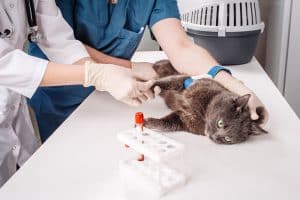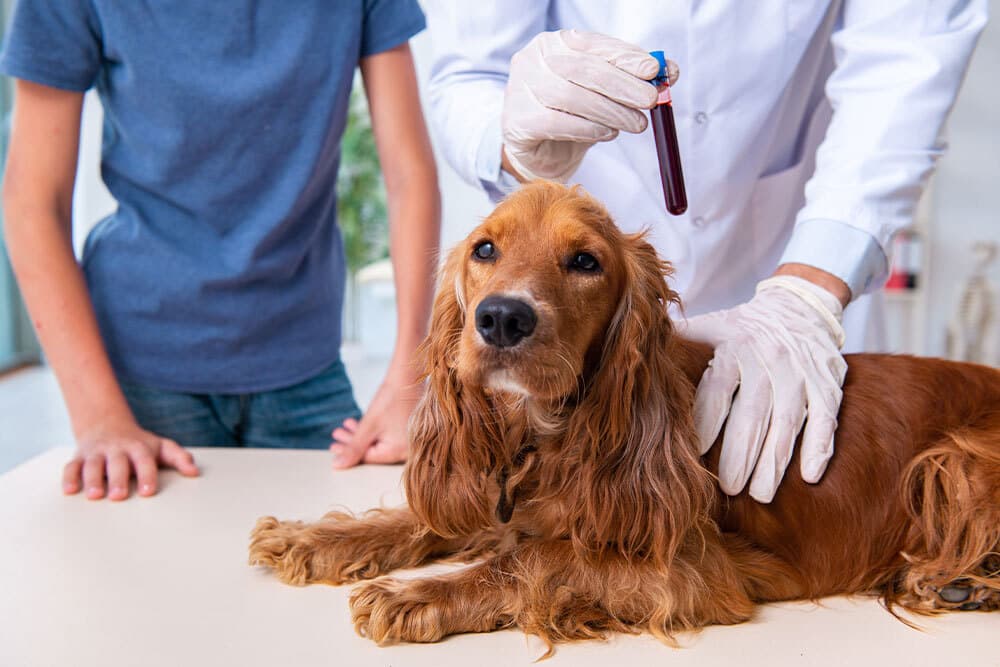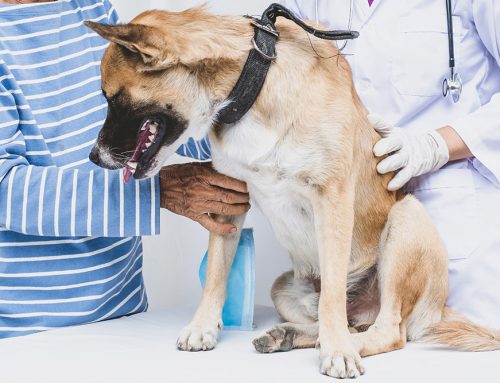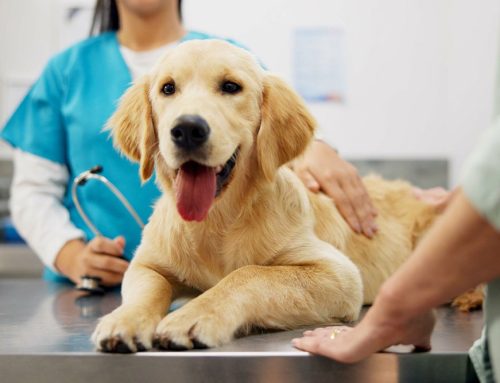At Arlington Animal Hospital in Arlington, VA, we know how important your pet’s health is to you. Whether they’re racing around the backyard or sleeping by your side, your goal is the same—to keep them healthy, comfortable, and thriving. One of the most effective tools we have for early detection of illness and long-term health monitoring is annual bloodwork.
It’s common for pet owners to wonder, “Why does my pet need bloodwork if everything seems fine?” That question makes perfect sense, and this guide explains why routine blood testing is essential, even when pets appear healthy.
Understanding Annual Bloodwork: A Look Beneath the Surface
Bloodwork gives veterinarians a detailed view of how your pet’s internal systems are functioning. It’s a routine part of preventive care that can detect issues long before symptoms appear—allowing for early intervention, which often leads to better outcomes and less invasive treatments.
What Annual Bloodwork Typically Includes
Complete Blood Count (CBC):
This test assesses the health and function of blood cells.
- Red Blood Cells (RBCs): Evaluate for anemia or dehydration.
- White Blood Cells (WBCs): Help detect infection, inflammation, or immune issues.
- Platelets: Crucial for blood clotting—low counts may indicate bleeding disorders or other systemic problems.
Biochemistry Profile (Chemistry Panel):
This test evaluates how organs are functioning and checks for imbalances.
- Kidney Values (BUN, Creatinine): Elevated levels can indicate early kidney disease. Learn more about Chronic Kidney Disease in Cats.
- Liver Enzymes (ALT, AST, ALP): Detect inflammation, damage, or dysfunction in the liver.
- Blood Glucose: Elevated levels may signal diabetes. Not So Sweet: Diabetes in Pets
- Electrolytes: Assess hydration, heart function, and muscle activity.
- Proteins (Albumin, Globulin): Used to evaluate immune health and nutritional status.
Thyroid Testing (T4):
Especially important in older pets, this test screens for conditions like hypothyroidism in dogs or feline hyperthyroidism.
Other Diagnostics:
Annual visits may also include heartworm screening, fecal testing, or additional labs tailored to your pet’s history. See Types of Veterinary Medical Tests for a broader overview.
What Bloodwork Can Uncover
Routine testing often reveals conditions in their early stages—even before there are outward symptoms.
Commonly detected conditions include:
- Kidney Disease: Especially common in senior cats, where values like BUN and creatinine start to rise subtly.
- Liver Disease: Early detection allows for diet changes or medication before irreversible damage occurs.
- Diabetes: Catching blood sugar abnormalities early allows for easier long-term management.
- Thyroid Disorders: Slow weight gain or behavioral shifts may indicate a thyroid imbalance. Learn more about Hypothyroidism in Dogs.
- Anemia or Infections: Subtle fatigue or pale gums can be symptoms that a CBC will explain.
These conditions are treatable, especially when discovered early.
How Bloodwork Changes by Life Stage
Puppies and Kittens
- Helps establish a healthy baseline
- Screens for congenital issues or abnormalities before spaying/neutering or vaccinations
Adult Pets
- Detects emerging issues not yet visible in exams
- Ensures fitness for anesthesia, dental cleanings, or long-term medications
Senior Pets
- Higher risk for chronic conditions makes bloodwork more important
- Recommended every six months for ongoing health monitoring
→ Preventive Testing for Senior Pets – Zoetis Petcare
Our team will tailor diagnostics to suit your pet’s lifestyle, age, and breed.
What to Expect at Your Pet’s Bloodwork Appointment
Step-by-Step Process
- Physical Exam
We start with a full exam and discussion of your pet’s history. - Blood Collection
A small sample is drawn, typically from the front leg or neck. We use low-stress handling techniques to make the process as smooth as possible. - Lab Analysis
Samples are tested either in-house or at a diagnostic lab. - Review and Discussion
Once results are available (usually within 24–48 hours), we’ll review them with you and explain what they mean.
What Happens If Results Are Abnormal?
If your pet’s bloodwork shows anything concerning, we may recommend:
- Additional tests or imaging to confirm a diagnosis
- Treatment options, such as medication, nutritional changes, or lifestyle adjustments
- Ongoing monitoring to track treatment effectiveness
Our approach is proactive and always personalized to what’s best for your pet’s long-term well-being.
Emotional Support: When Bloodwork Uncovers Health Concerns
We understand that unexpected news can be difficult. Our role is to help you make informed decisions with clarity and support.
- We will walk you through results, step-by-step.
- We offer options and guidance to help you choose a care path that aligns with your goals.
- We provide ongoing communication, so you never feel alone navigating your pet’s care.

Common FAQs About Bloodwork
Does bloodwork hurt my pet?
No. The sample is taken quickly, and most pets tolerate it well. We use calming techniques to reduce stress.
How often is bloodwork needed?
- Once per year for healthy adults
- Twice per year for senior pets
- As needed for pets on medication or with chronic conditions
Can bloodwork detect cancer?
Some forms of cancer may be suspected through abnormal blood values, but imaging or biopsy is usually needed for confirmation.
How to Prepare for Your Pet’s Visit
Here’s how you can help the appointment go smoothly:
- Fasting: Ask us if your pet should fast beforehand (usually needed for chemistry panels).
- List all medications/supplements your pet takes.
- Track behavior changes or symptoms to report at your visit.
- Bring any questions—we’re happy to walk you through every step.
We’re Here to Help You Make Informed Choices
At Arlington Animal Hospital, we’re more than just your pet’s healthcare provider—we’re your partner in preventive care. Annual bloodwork is one of the most important investments you can make in your pet’s long-term health.
If you have questions or are ready to schedule a wellness visit, contact us today. Together, we can ensure your pet lives a healthier, longer life through early detection and personalized care.





Leave A Comment